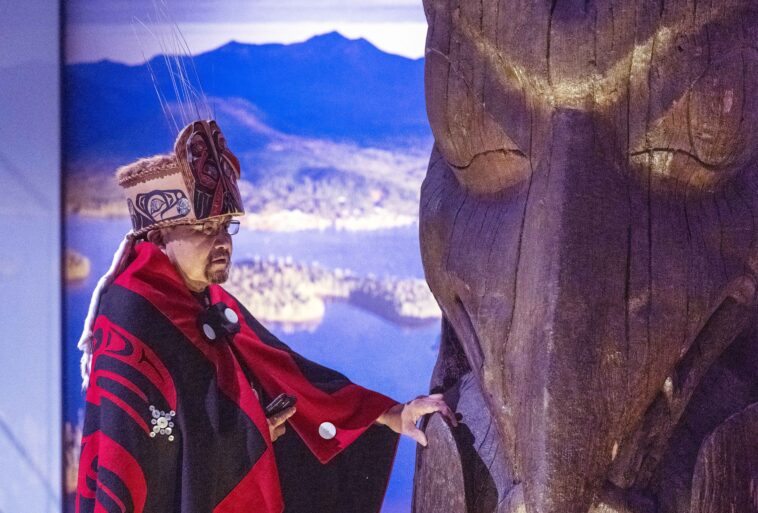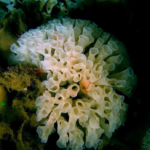A 19th Century memorial pole from the Nass Valley will be sent home by the Scottish museum that obtained it nearly a century ago.
Scottish authorities announced this week they would return the pole at the request of a delegation from the Nisga’a Nation, which travelled to Edinburgh in August to make their case.
“We have informed the Nisga’a Nation and will now begin to make arrangements for the transfer of the Pole to the Nisga’a Museum,” said National Museums Scotland in a statement.
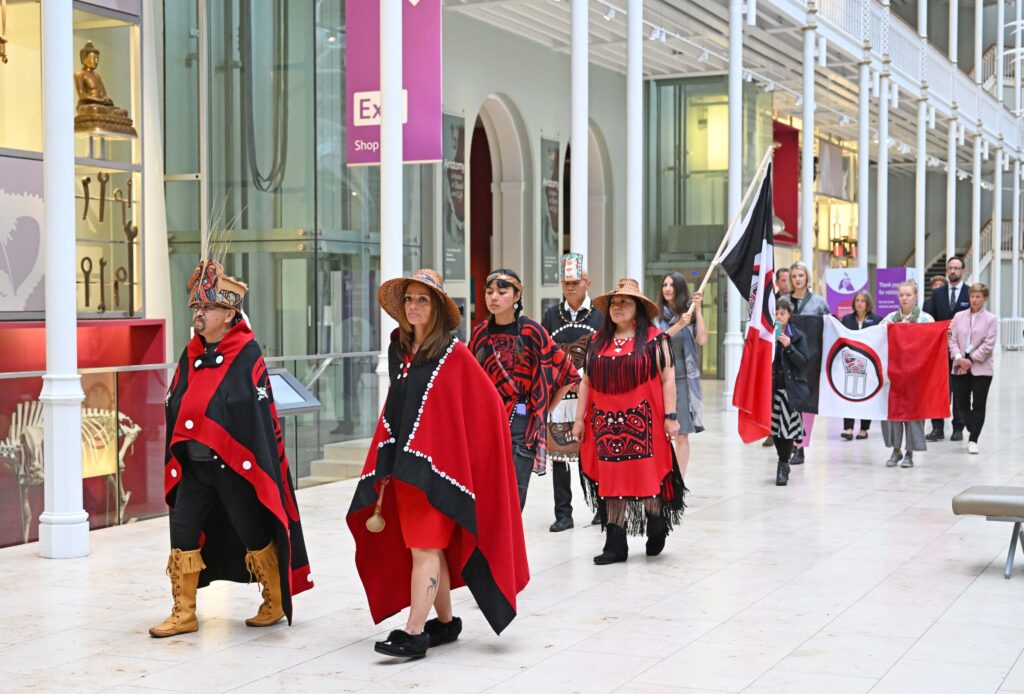
Artist Oyea Tait and assistant Gwanes carved the pole in the mid-1800s in honour of Ts’aawit, who died before he could take his place as a Nisga’a chief. Made from red cedar, the 11-metre pole features interlocking figures relating to Ts’aawit’s family history through his ancestors, family crests and his clan.
“In Nisga’a culture, we believe that this pole is alive with the spirit of our ancestor,” said Nisga’a Nation chief Sim’oogit Ni’ijoohl (Earl Stephens). “After nearly one hundred years, we are finally able to bring our dear relative home to rest on Nisga’a lands. It means so much for us to have the Ni’isjoohl memorial pole returned to us so that we can connect our family, nation, and our future generations with our living history.”
The pole stood in front of the house of relatives of chief Ts’aawit in Ank’idaa village until 1929. Whether it was sold or stolen that year is in dispute.
The Scottish museum’s statement said it was “purchased” from its Nisga’a owners by Marius Barbeau, a museum curator, on behalf of the Scottish museum.
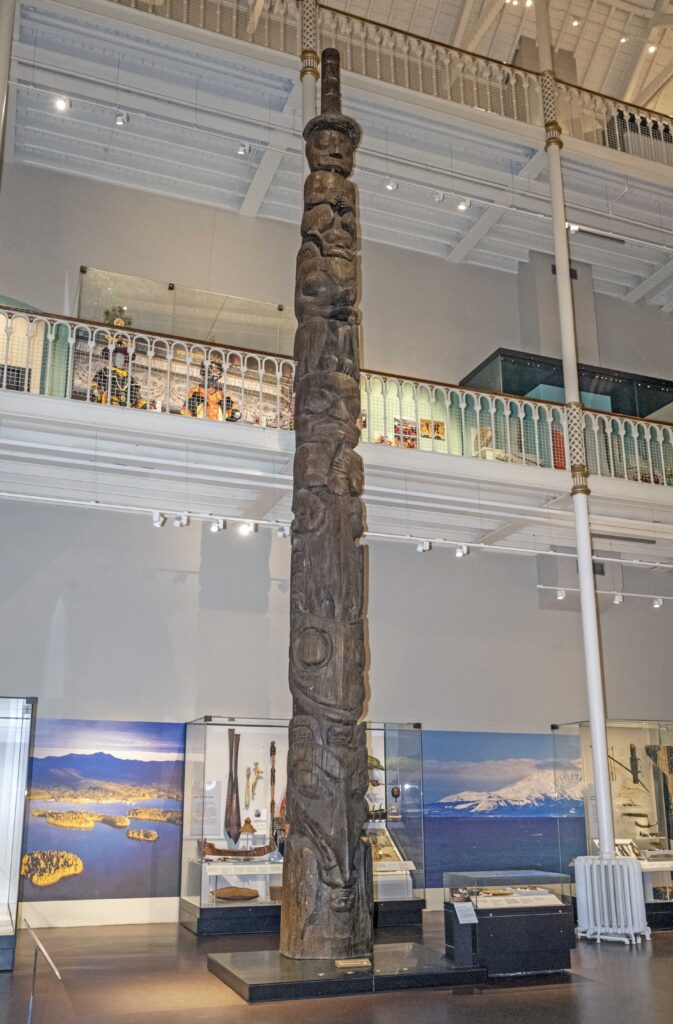
The Nisga’a nation said in a statement emailed to West Coast Now that “In the summer of 1929, Canadian colonial anthropologist Marius Barbeau stole the House of Ni’isjoohl memorial pole from the Nisga’a village of Ankida’a” and was given permission to do so by the “Superintendent of Indian Affairs.”
The pole was then sold “to the Royal Scottish Museum (now National Museum of Scotland) where it has been housed since 1930.”
“The House of Ni’isjoohl and the Nisga’a Nation are grateful that this wrong is being corrected by the actions of the National Museums Scotland with the return of the pole, in order to set a precedent for reconciliation and reparation for institutions around the world,” the statement explained.
Museums Scotland said this week they will return it because “We are committed to promoting understanding and dialogue with respect to those parts of the Museum’s collection associated with our nation’s colonial history and its difficult legacies.”
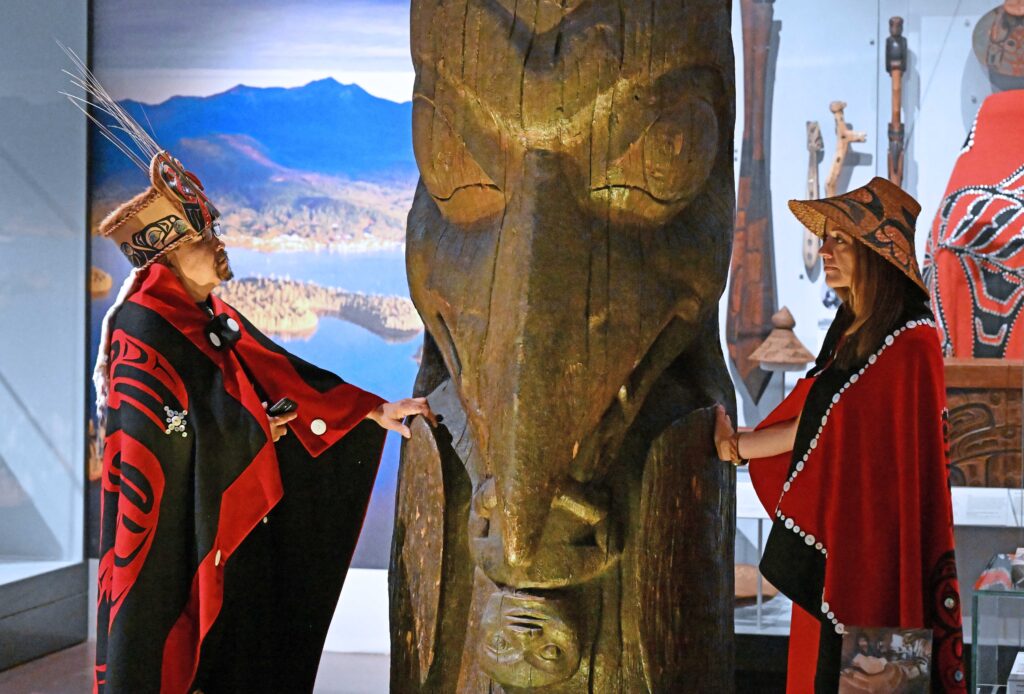
“Our hearts have been moved with the commitment to return our family’s cultural treasure,” said Dr. Amy Parent of Simon Fraser University, Canada Research Chair in Indigenous Education and Governance.
Parent earlier called the pole “a priceless belonging (and) cultural treasure. It tells the relationship of our House to the land and to our People. To have had it taken from us is to have removed a piece of our cultural identity and an integral part of the story of our nationhood.”
A spokesperson for the Nisga’a Nation told West Coast Now that the details of who will pay to ship the pole back, and when it will arrive, will be discussed by Museums Scotland and the Nisga’a Nation later this month.




